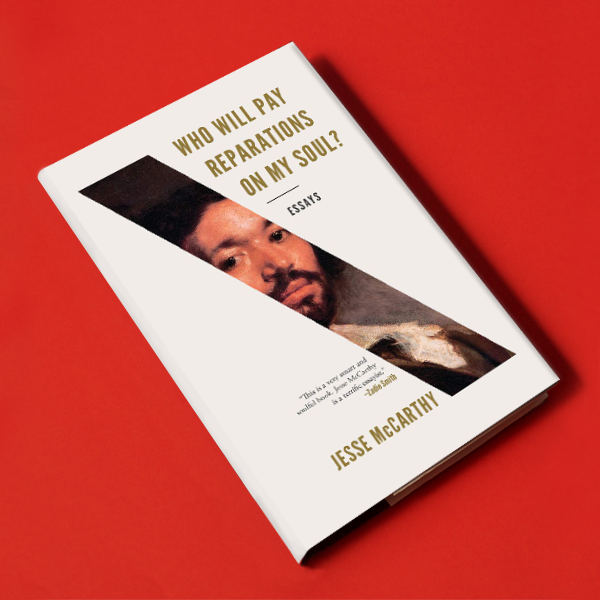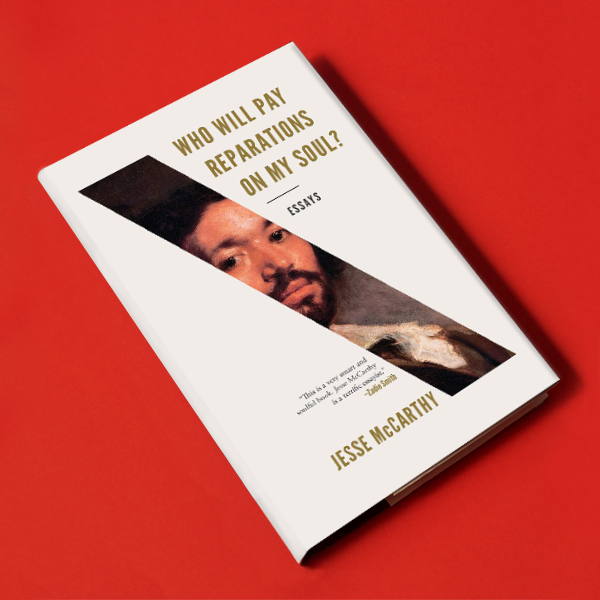Who Will Pay Reparations on My Soul?, by Jesse McCarthy
Couldn't load pickup availability
McCarthy reinvigorates the essay form as a space not only for argument but for experimental writing that mixes and chops the old ways into new ones. In “Notes on Trap”—originally published in n+1—he borrows a conceit from Susan Sontag to reveal the social and political significance of trap music, the drug-soaked strain of Southern hip-hop that, as he puts it, is “the funeral music that the Reagan Revolution deserves.” In “Back in the Day,” McCarthy, a black American raised in France, evokes his childhood in Paris through an elegiac account of French rap in the 1990s. In “The Master’s Tools,” the relationship between Spanish painter Diego Velázquez and his acolyte-slave, Juan de Pareja, becomes the lens through which Kehinde Wiley’s paintings are viewed, while “To Make a Poet Black” explores the hidden blackness of Sappho and the erotic power of Phillis Wheatley. Essays on John Edgar Wideman, Claudia Rankine, and Colson Whitehead survey the state of black letters. In his title essay, McCarthy takes on the question of reparations, arguing that true progress will not come until Americans remake their institutions in the service of true equality. As he asks, “What can reparations mean when the damage cannot be accounted for in the only system of accounting that a society recognizes?”
Praise for Who Will Pay Reparations on My Soul?
“This is a very smart and soulful book. Jesse McCarthy is a terrific essayist.” —Zadie Smith
“Jesse McCarthy is an artist of the ear. In the essays collected in Who Will Pay Reparations on My Soul? he shows us how to hear the anguish and strange joy in trap music, the verbal and rhetorical nuances in American political and poetic traditions, and even the minute change in meaning between “black” and “Black.” Out of these sounds and many others, McCarthy’s challenging and startlingly humane essays make a symphony. This is a beautiful and beguiling new voice, tuned perfectly for the troubles and opportunities of our moment. Listen up.” —Vinson Cunningham


